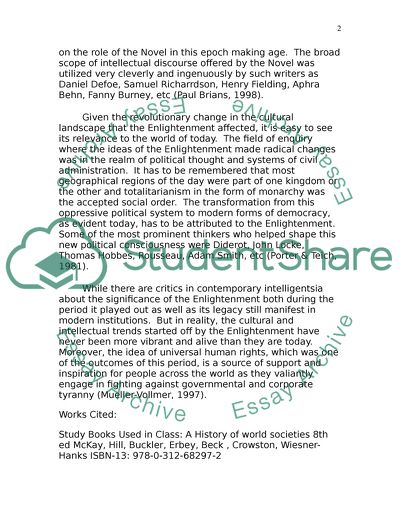Retrieved from https://studentshare.org/miscellaneous/1557221-science-enlightenment-and-politics-which-was-most-important-to-your-world
https://studentshare.org/miscellaneous/1557221-science-enlightenment-and-politics-which-was-most-important-to-your-world.


